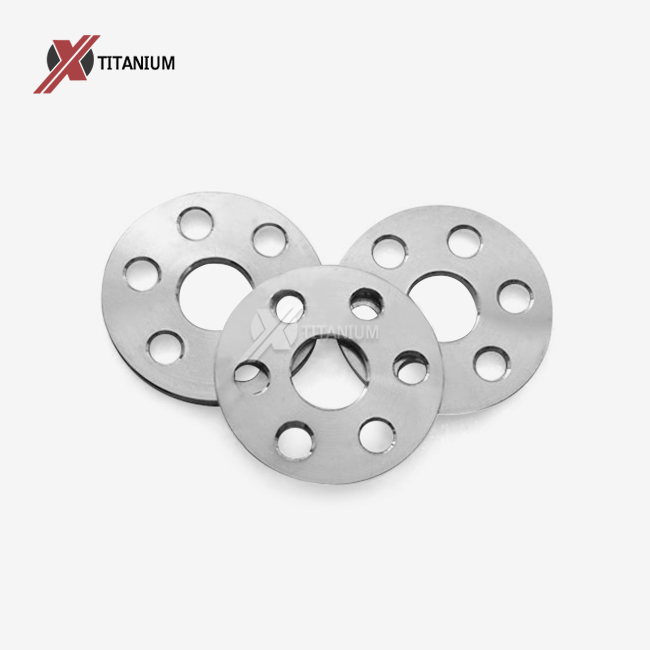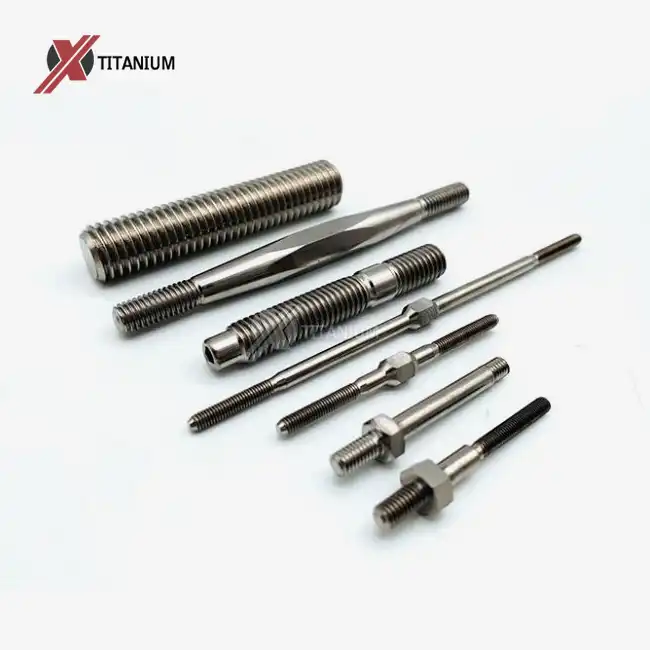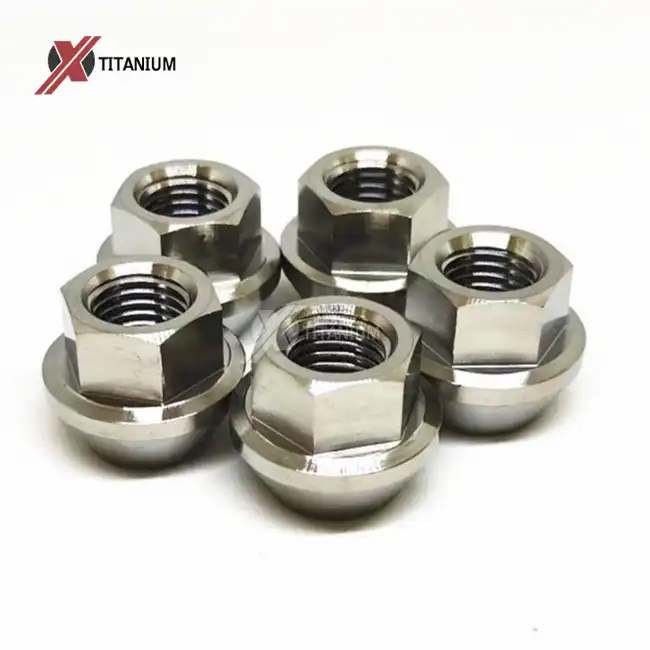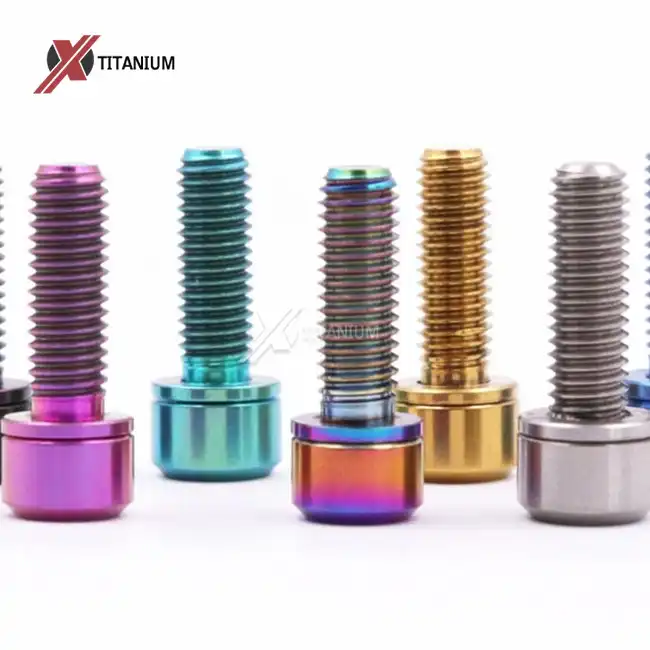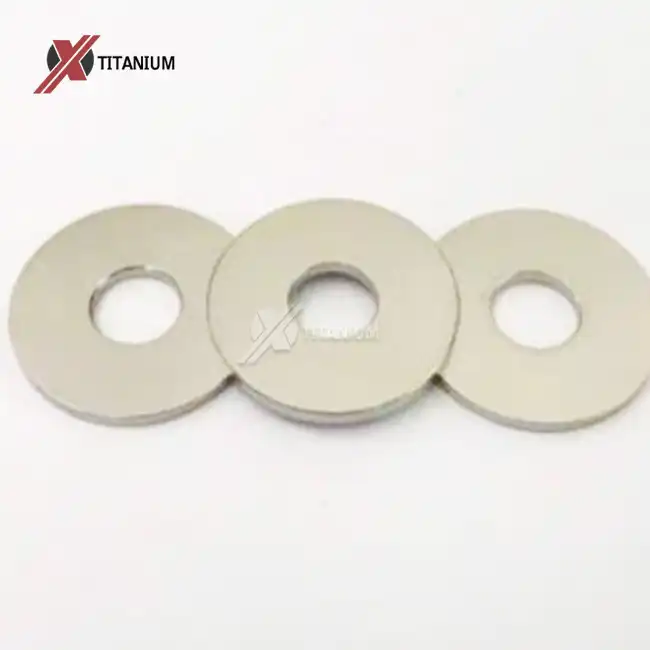The Unique Properties of Titanium in Aerospace Applications
Titanium's remarkable characteristics make it a standout material in the aerospace industry. Its high strength-to-weight ratio is particularly advantageous, allowing for robust components that don't compromise an aircraft's fuel efficiency or payload capacity. Customized titanium washers leverage these properties to provide superior performance in critical applications.
Strength and Lightweight Nature
The aerospace sector demands materials that can withstand immense stresses while maintaining minimal weight. Titanium excels in this regard, offering a strength comparable to steel but at roughly half the weight. This makes customized titanium washers ideal for use in aircraft structures, engine components, and fastening systems where weight reduction is crucial.
Engineers can design these washers to precise specifications, ensuring they meet the exact load-bearing requirements of each unique application. The ability to customize the thickness, diameter, and shape of titanium washers allows for optimal distribution of forces, enhancing the overall structural integrity of aerospace assemblies.
Corrosion Resistance
Aerospace environments are notoriously harsh, exposing materials to a wide range of corrosive elements. Titanium's natural resistance to corrosion makes it an excellent choice for washers that must maintain their integrity over long periods. The metal forms a stable, protective oxide layer when exposed to oxygen, providing a barrier against chemical attack.
Customized titanium washers can be further treated to enhance their corrosion resistance. Techniques such as anodizing or nitriding can create an even more durable surface, extending the lifespan of these critical components. This is particularly important in areas of an aircraft exposed to salt spray, humidity, and extreme temperature variations.
Temperature Tolerance
Aerospace applications often involve exposure to extreme temperatures, from the frigid cold of high altitudes to the intense heat generated by engines. Titanium's ability to maintain its mechanical properties across a wide temperature range makes it an ideal material for washers in these environments.
Customized titanium washers can be engineered to perform optimally at specific temperature ranges, ensuring they maintain their shape, strength, and fastening capabilities whether in the sub-zero temperatures of the stratosphere or the heat-intensive areas near propulsion systems.
Customization Advantages for Aerospace Engineering
The ability to customize titanium washers offers aerospace engineers a level of precision and adaptability that is crucial in their field. This customization extends beyond mere dimensions, encompassing various aspects that contribute to the overall performance and reliability of aerospace systems.
Precision Fit and Tolerance Control
Aerospace engineering demands exacting standards, where even the slightest deviation can have significant consequences. Customized titanium washers can be manufactured to incredibly tight tolerances, ensuring a perfect fit within complex assemblies. This precision is vital for maintaining proper load distribution, preventing loosening due to vibration, and ensuring the longevity of fastened joints.
Engineers can specify exact inner and outer diameters, thickness, and surface finish to match the unique requirements of each application. This level of control allows for the optimization of weight distribution and stress management across the entire structure, contributing to the overall efficiency and safety of the aircraft or spacecraft.
Specialized Coatings and Treatments
While titanium itself offers excellent properties, customized titanium washers can be further enhanced through specialized coatings and surface treatments. These modifications can impart additional characteristics such as improved wear resistance, reduced friction, or enhanced electrical conductivity.
For instance, aerospace engineers might opt for dry film lubricant coatings on titanium washers used in areas with limited access for maintenance. This ensures long-term lubrication and prevents galling or seizing of fasteners. Alternatively, washers intended for use in electrically sensitive areas might receive a conductive coating to aid in grounding or EMI shielding.
Design Flexibility for Unique Challenges
The aerospace industry constantly pushes the boundaries of what's possible, often requiring components that don't exist off-the-shelf. Customized titanium washers provide engineers with the flexibility to design solutions for unique challenges.
This might involve creating washers with special profiles to fit into tight or irregularly shaped spaces, developing load-spreading washers for composite materials, or designing washers with integrated features such as locking mechanisms or alignment guides. The ability to tailor these components to specific needs allows for innovative solutions that can significantly improve the performance, maintainability, and safety of aerospace systems.
Manufacturing Processes and Quality Control
The production of customized titanium washers for aerospace applications involves sophisticated manufacturing processes and rigorous quality control measures. These ensure that each washer meets the exacting standards required for flight-critical components.
Advanced Manufacturing Techniques
Customized titanium washers are typically produced using a combination of advanced manufacturing techniques. Computer Numerical Control (CNC) machining is often employed for its precision and ability to create complex shapes. This process allows for the production of washers with tight tolerances and specialized features that would be difficult or impossible to achieve with traditional manufacturing methods.
For high-volume production, processes like stamping or fine-blanking might be used, followed by secondary operations to achieve the required tolerances and surface finishes. Advanced forming techniques can also be employed to create washers with unique profiles or load-spreading designs.
In some cases, additive manufacturing (3D printing) is utilized for producing prototype washers or small batches of highly complex designs. This technology allows for rapid iteration and the creation of geometries that would be challenging to produce through traditional means.
Material Selection and Certification
The selection of the appropriate titanium alloy is crucial in the manufacturing of customized washers for aerospace use. Commonly used grades include Ti-6Al-4V (Grade 5) for its excellent strength-to-weight ratio, and commercially pure titanium grades for applications requiring maximum corrosion resistance.
All materials used must be certified and traceable, meeting aerospace industry standards such as AMS (Aerospace Material Specifications) or ASTM (American Society for Testing and Materials) requirements. This ensures that the washers' performance characteristics are consistent and predictable, a critical factor in aerospace engineering.
Quality Assurance and Testing
Rigorous quality control measures are implemented throughout the manufacturing process of customized titanium washers. This includes dimensional inspections using high-precision measuring equipment, material composition verification through spectrographic analysis, and mechanical property testing to ensure compliance with specified strength and hardness requirements.
Non-destructive testing methods such as ultrasonic or X-ray inspection may be employed to detect any internal defects in the material. Surface finish and coating thickness are also carefully controlled and verified to meet the specified requirements.
For flight-critical applications, aerospace engineers may require additional testing and certification, such as fatigue testing, corrosion resistance verification, or performance testing under simulated environmental conditions. These stringent quality assurance processes ensure that each customized titanium washer meets the high standards of reliability and performance demanded by the aerospace industry.
Conclusion
Customized titanium washers represent a critical component in the aerospace engineer's toolkit, offering a perfect blend of strength, lightweight properties, and adaptability. Their ability to be tailored to specific needs allows for innovative solutions to complex engineering challenges, contributing significantly to the advancement of aircraft and spacecraft technology.
As the aerospace industry continues to evolve, pushing the boundaries of performance and efficiency, the demand for specialized components like customized titanium washers is likely to grow. Their role in ensuring the safety, reliability, and optimal functioning of aerospace systems cannot be overstated.
For engineers and manufacturers seeking to leverage the benefits of customized titanium washers in their aerospace projects, partnering with experienced suppliers is crucial. Baoji Chuanglian New Metal Material Co., Ltd. specializes in the production of high-quality titanium components, including customized washers for aerospace applications. To learn more about how our expertise can support your engineering needs, please contact us at info@cltifastener.com or djy6580@aliyun.com.
